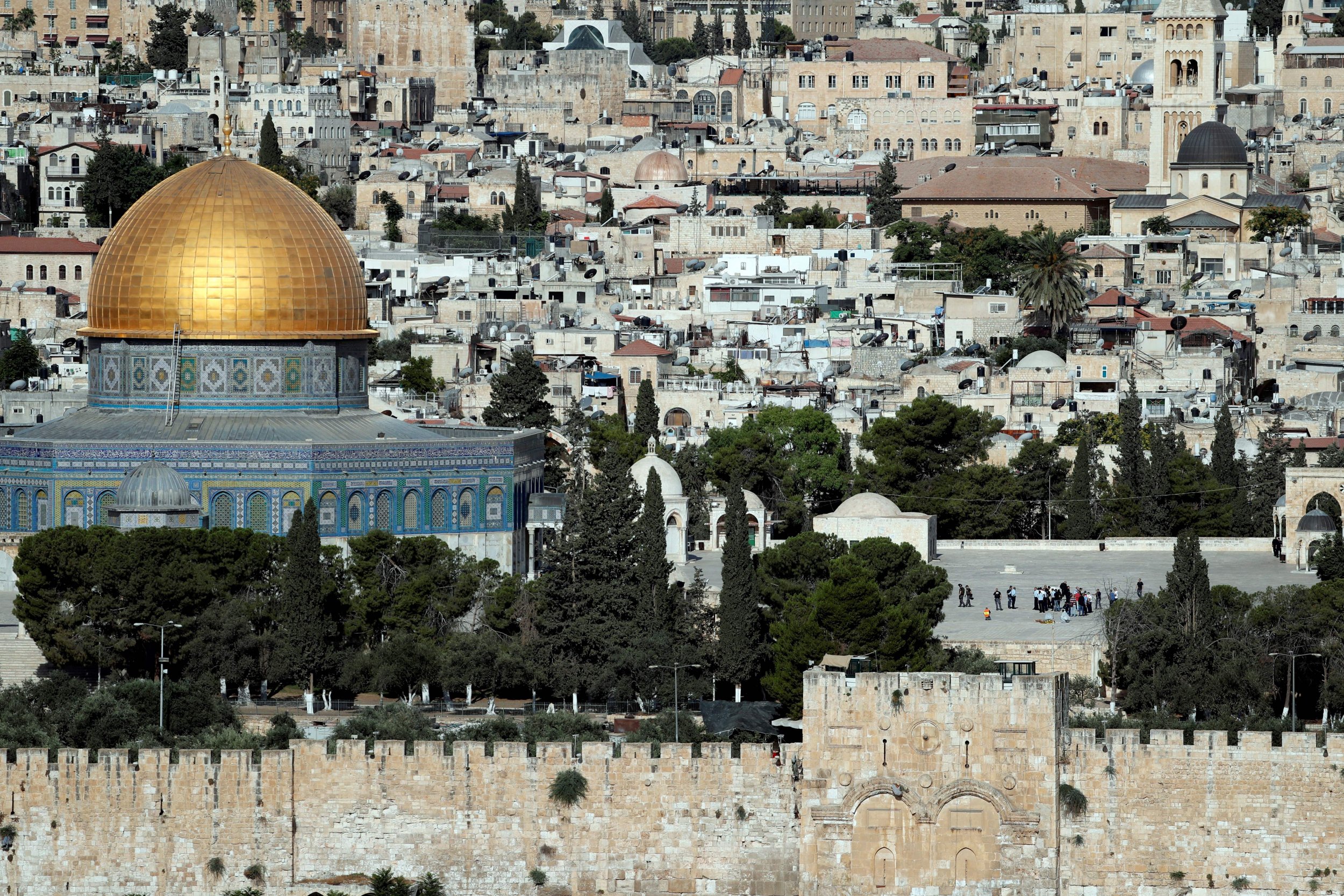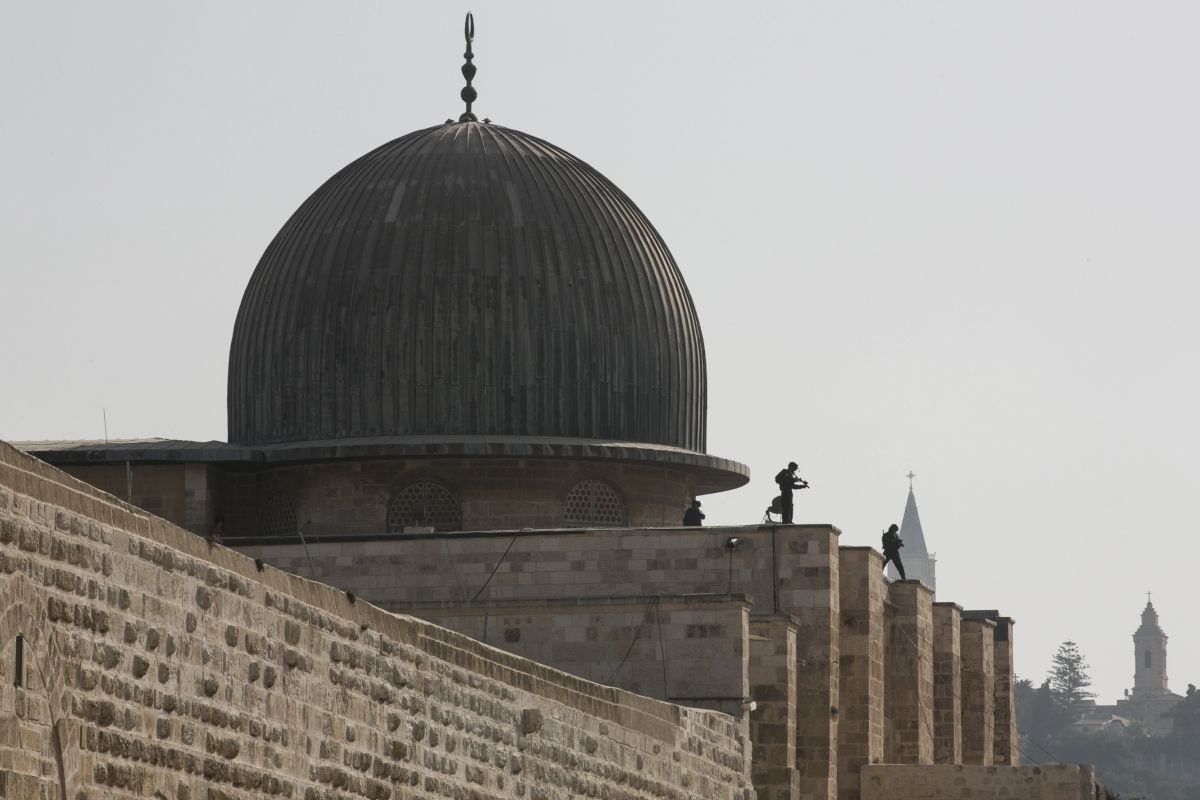
Following the attack by three Arab Israelis at the Noble Sanctuary, known to Jews as the Temple Mount, which left two Israeli police officers dead, the Israeli government decided to place new security restrictions at the entrance to the holy site. Since this decision, the Waqf, or Islamic trust presiding over the site, and the Palestinian Authority have called on Muslims to rally against these measures, which protect first and foremost worshipers coming to pray.
The attackers, the Waqf and the PA are ignoring the clear prohibition in the passages of the Koran that forbid the killing of innocents and even more so, doing it in a holy place. Surat al-Asraa, verse 33 in the Koran says: "And do not wrongfully kill any living being which Allah has forbidden; and for whoever is slain wrongfully, we have given the authority to his heir to take vengeance..."
The Noble Sanctuary is a very powerful and piercing propaganda tool for many Arab and Muslim organizations that want to exploit it for disinformation, incitement and provocations. It was the well-known and useful method used by Haj Amin al-Husseini who was the Mufti of Jerusalem in the 1930s, when he told the Arab world that the Al-Aqsa Mosque was in danger in order to divert their attention to the conflict in the Holy Land.
With countries around the region trying to divert attention from their internal problems, we see today the same method used by all kinds of extremist movements and organizations that are constantly harping that the Noble Sanctuary and the Al-Aqsa Mosque are in danger and should be "liberated." This is what makes the Al-Aqsa Mosque a very effective tool for raising funds and donations on behalf of the "struggle" by these organizations.
After the war of 1967, the Noble Sanctuary was under Israeli military control, and later the administration was transferred to the Jordanian Waqf. Since 1967 there have been a number of violent incidents on the site, but with an area considered the most sensitive in the country, the Israeli government has always taken into account its politically explosive nature.
Mere rumors by Palestinians regarding Al-Aqsa are enough to ignite a conflagration. The site is sacred to both Jews and Muslims, so the Israel Security Agency knows the sensitivity of the issue and constantly monitors those individuals and organizations who deal with it.
Because of the great sensitivity of the Al-Aqsa Mosque, we have not heard a clear and unequivocal condemnation of the attack from the general Muslim society. The murdered policemen were Druze, believers in Allah, serving there to preserve the peace and protect the people of all faiths who visit the holy site.

In the wake of machine guns that were used in the attack being smuggled inside the compound, the government decided to place metal detectors at the entrances for the purposes of security checks to help keep out illegal weapons that would desecrate the holy site. This is first and foremost intended to protect the personal safety of worshippers and visitors. These metal detectors have been present for years at the entrance to the Western Wall and the Mugrabi Gate, where Jews and other tourists enter the Temple Mount complex.
But like in Israeli society, the same shrill reactionary voices that whine over every change the government implements are wailing again that the metal detectors—a standard safety device used in every country around the world—is a change in the status quo aaimed at harming Muslims and the Al-Aqsa Mosque.
Extremists are opposed to any change even if they are there to serve the safety and security of their own worshippers. Even the King of Saudi Arabia said he saw no problem with the installation of electronic means of inspection, which are the same ones used at Islam's holiest shrines in Mecca and Medina.
As the popular Arab proverb says: "These people do not want to eat the grapes, but rather, want to quarrel with the guard of the vineyard."
It is upon us as Arab citizens of Israel to condemn all acts of terror without doubting or blinking, in a loud and clear voice, as well as fighting incitement and those within our society who call for violence, and most importantly separating politics from religion.
As a Muslim Arab living in Israel I call on the world to start taking this manner seriously. The conflict between Israel and the Palestinians is not between two religious groups. The Palestinian leadership is abusing Islam and its holy site to incite the masses all in order to promote their own agenda. The international media has to stop falling for these spins, and the international community, including the Muslim world should support any action that safeguards freedom of religion and the worshipers personal safety at the Al-Aqsa Mosque.
Mohammed Kaabiya is a strategic advisor on the Arab world to Israel's Ministry of Foreign Affairs.
Uncommon Knowledge
Newsweek is committed to challenging conventional wisdom and finding connections in the search for common ground.
Newsweek is committed to challenging conventional wisdom and finding connections in the search for common ground.
About the writer
To read how Newsweek uses AI as a newsroom tool, Click here.








